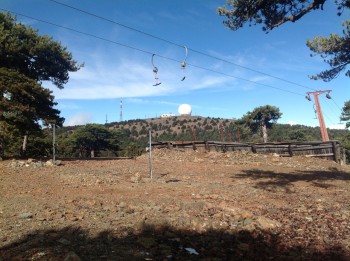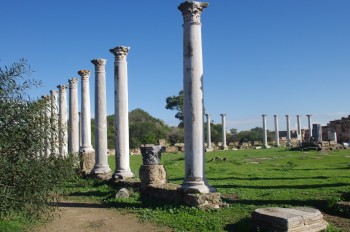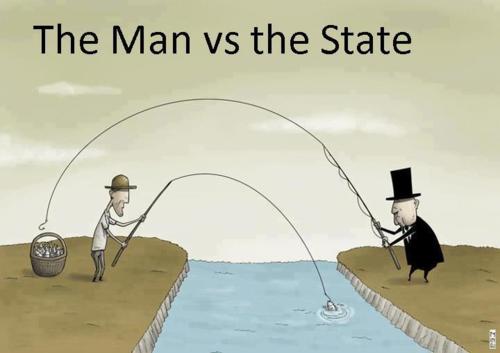We are developing the social individualist meta-context for the future. From the very serious to the extremely frivolous... lets see what is on the mind of the Samizdata people.
Samizdata, derived from Samizdat /n. - a system of clandestine publication of banned literature in the USSR [Russ.,= self-publishing house]
|

Haifa, Israel. January 2012.

Jerusalem. January 2012

Jordan River Valley, January 2012

Istanbul, Turkey. February 2012

Aronda, Goa. March 2012

Mumbai, India. March 2012

Nowa Huta, Poland. April 2012

Karak, Jordan. May 2012.

Dimona, Israel. May 2012.

Jerusalem. May 2012.

Jericho, Palestine. May 2012

Bethlehem. May 2012

Ari’el, Judea and Samaria. May 2012

Gamla, Golan Heights. May 2012

Paris, France. June 2012

Opole, Poland. July 2012

Mostyn, Wales. September 2012

Berlin, Germany. September 2012

Będzin, Poland. September 2012

Ostrava, Czech Republic. October 2012

Budapest, Hungary. October 2012

Uzhhorod, Carpathian Ruthenia. October 2012

Berlin, Germany. November 2012

Kraków, Poland. November 2012

Mt Olympus, Republic of Cyprus. December 2012

Pyla, United Nations Buffer Zone, December 2012

Dhekelia Sovereign Base Area. December 2012

Varosha, Famagusta. December 2012.

Salamis, Turkish Republic of Northern Cyprus. December 2012

Akrotiri Sovereign Base Area. December 2012
Among the many newspaper reports from Connecticut on the massacre of children in Sandy Hook is one in the Times by David Taylor, remembering an earlier crime:
Sixteen years ago I witnessed the same phenomenon in Dunblane where another school lost a group of children. The sadness seemed to seep out of the stones of the Scottish town after Thomas Hamilton opened fire.
From what abyss does such a crime come? I was searching on the internet for the words of the 130th Psalm, De profundis clamo ad te, domine – Out of the depths I cry unto thee, O Lord – and found the letter written from prison by Oscar Wilde which was later given the title De Profundis by his literary executor. I have not yet read it all but the opening words resonated for me because of the contrast between the depths of grief (Wilde describes hearing the news of his mother’s death while in prison) and a happy season:
. . . Suffering is one very long moment. We cannot divide it by seasons. We can only record its moods, and chronicle their return. With us time itself does not progress. It revolves. It seems to circle round one centre of pain. The paralysing immobility of a life every circumstance of which is regulated after an unchangeable pattern, so that we eat and drink and lie down and pray, or kneel at least for prayer, according to the inflexible laws of an iron formula: this immobile quality, that makes each dreadful day in the very minutest detail like its brother, seems to communicate itself to those external forces the very essence of whose existence is ceaseless change. Of seed-time or harvest, of the reapers bending over the corn, or the grape gatherers threading through the vines, of the grass in the orchard made white with broken blossoms or strewn with fallen fruit: of these we know nothing and can know nothing.
For us there is only one season, the season of sorrow. The very sun and moon seem taken from us. Outside, the day may be blue and gold, but the light that creeps down through the thickly-muffled glass of the small iron-barred window beneath which one sits is grey and niggard. It is always twilight in one’s cell, as it is always twilight in one’s heart. And in the sphere of thought, no less than in the sphere of time, motion is no more.
Inevitably on a blog such as this in a world such as this there will, and should, be discussion of motives, diagnoses, policies; debate about what should and should not be done. For us outside, motion will begin again.
What have you failed to find on the internet that you expected to be there?
As I do tire of pointing out, belief in the free market no more obliges you to approve of every single transaction than belief in free speech obliges you to approve of every word spoken.
The eBay account of our very small business was hacked into recently and a bunch of non-existent stuff sold in our name. The direct results of this have been sorted out and the victims of the scam repaid. However at some point eBay and/or Paypal (Paypal is a subsidiary of eBay) wrongly compensated us for some of these “purchases”. Our Paypal account currently has coming up to a thousand pounds more in it than it should have. Do Paypal want to know? No they do not. There is something wrong with a company so complacent that it cannot even rouse itself to take back its own. To be fair, the young Irish people I talk to when I ring up Paypal try to help. If my customer service experience stopped there it would still be ghastly because all possible customer service experiences in all possible worlds are ghastly but it would be ghastly in a comparatively good way. Unfortunately they do not have the authority to relieve me of the burden (it is a burden) of nearly a thousand quid, so they pass the buck to eBay central, over in one of the lesser circles of Hell staffed by resentful demons who failed to qualify as incubi and succubi. Their task is to choose whichever of six formulaic replies bears least resemblance to the actual situation and email it to me overnight.
eBay and Paypal could do with some competition.
There is an article by David V. Johnson, which is an interview with American leftist Martha Nussbaum, during which she conflates ‘respect’ with ‘tolerance’ and that is a telling category error. Nussbaum at least accepts (I sense rather grudgingly) that many ‘bad’ views must be accepted within civil society but…
Am I willing to tolerate Muslims? Certainly… at least the ones who will reciprocate and tolerate an atheist like me. And those who will not? Well no, I will not tolerate them either. For much the same reason I will happily tolerate any communist or socialist who wants to go live on a kibbutz, because I do not have to join them. And fascist socialists who want to live in judenfrei whites-only retreats on private property in the back of beyond somewhere, well knock yourself out guys, the farther away you are from me, well, lets just say it is a win-win for all concerned.
However the ones who wish to impose their oppressive views on me via the state? The ones whose views move them to do politics (which is what we call the struggle to control and use the means of collective coercion)? No, they will not tolerate me so I will reciprocate and try to use the force of the state, or whatever other means are available, to suppress them too. Tolerating those who will not tolerate you is more correctly know as “cowardice”.
But that is it. Tolerance. That is all that anyone can expect, provided they reciprocate it. Never respect.
Do I have ‘equal respect’ for Islam? Or socialism in all its ‘left’ and ‘right’ forms? Or racism? Hell no. I do not respect them at all as I do not respect any religion or any intrusive collectivist political order. But I will tolerate adherents of things I think are wrong if they tolerate me, which means not imposing their wishes on me by force. Several contributors to this blog are religious and I respect them, because they earned it, and their religious views do not require them to impose their beliefs on me by force. Tolerance.
Oh and another annoying thing in this article is the use of the term ‘liberalism’ to mean the exact opposite of the term as understood by classical liberals.
Last night I attempted to describe what I thought of this (which I photoed about an hour before photoing that Pedibus):
But I feared that my efforts of last night might get Samizdata sued for libel by Santander, so I had to start again. Maybe Santander really do practise all that they are here preaching, on this bloke’s back.
But, Santander aside, what is it about corporate proclamations of this sort that makes them so vomit-inducing? (See what I mean.) I mean, you don’t have to run about London in a T-shirt like this, do you? Nobody pointed a gun at this bloke, or I do not suppose so. And if you really hate having to endure this kind of verbiage at work, you can always get some other sort of job, can’t you?
Maybe not. Maybe if you are an office worker, in a city like London, of a certain rank, doing a certain sort of work, then insincere verbiage exuding fake enthusiasm and moral ambition that is relentlessly out of line with what they actually reward you for doing and fire you for neglecting to do is something that cannot be avoided, no matter where you work. Besides which, moving from one job to another, although perhaps possible, is quite an upheaval. For many, another job that covers the outgoings would be hard to come by, in times like these.
Now I entirely realise that a T-shirt that I don’t like does not register very highly on the evilometer. It is nothing, for instance, compared to the kind of skullduggery that Johnathan Pearce’s piece earlier today, about Fast and Furious, alludes to. Nevertheless, I’d be interested if readers here are as put off by this kind of thing as I am.
I don’t think it’s just me. I have a number of friends who are, right now, being driven almost insane with suppressed rage by employment which (a) they would prefer to hang on to, despite it (b) involving lots of the usual tiresome crap that you have to put up with when you have a job, but which also includes (c) occasional bouts of psychological torture when, often at vast expense and involving huge amounts of travel, everyone is subjected to interminable out-of-hours company propaganda – propaganda that cannot simply be screened out, because it demands “involvement”, the content of which is insultingly disconnected from the daily grind. It’s a kind of spiritual bullying, and yet my friends just have to put up with it. If they said what they really thought, they’d be fired for insubordination on the spot.
I’m out of all this now, but my own most memorable experience of this kind of psychobabble company bullshit, so to speak, was actually very positive. But that was a long time ago, before this kind of stuff got way out of hand. And the person doing it to us really knew what she was talking about, did so with total honesty and lack of waffle or of third-hand verbiage she had got from a book that she didn’t understand, and she knew how to make it stick. And she was in general the absolute opposite of the kinds of bosses from hell who combine being mediocre with being mad that my friends now complain about.
It seems that Alain de Botton, who I might add is a weapons grade plonker of the first order, has finally come up with a good idea.
As his next project, the philosopher and founder of The School of Life is aiming to revolutionise pornography. Driven by the way society has been saturated by explicit images and videos, de Botton is asking ‘what next for porn?’. The writer intends to meet with leaders in porn and the arts in order to bring about a better kind of pornography.
Well I am all for anything that leads to better products. And perhaps he will use this opportunity to point out to these “leaders in porn” that boob implants are to porn what McDonald’s is to fine dining.
What does anyone know about the outfit calling itself FairSearch?
Based on growing evidence that Google is abusing its search monopoly to thwart competition, we believe policymakers must act now to protect competition, transparency and innovation in online search.
Policymakers? That is a bit like asking a collective of rapists to protect chastity, virginity and privacy. In my experience nine times out of ten when I hear people calling for a market leader to be kicked by ‘policy makers’, it is because they find it cheaper to pay lobbyists to do in the competition’s legs than actually compete with them.
Anyone have the low down on these guys?
A Dead Statesman
I could not dig; I dared not rob:
Therefore I lied to please the mob.
Now all my lies are proved untrue
And I must face the men I slew.
What tale shall serve me here among
Mine angry and defrauded young?
Rudyard Kipling
Ponder…
James Taranto (with thanks to Instapundit for the link and the quote):
In 1999 Lionel Tiger coined the word “bureaugamy” to refer to the relationship between officially impoverished mothers of illegitimate children and the government.
A little googling tells me that this word hasn’t been completely ignored since 1999. But if the internet had been more of a Thing in 1999, I surmise that it might have become a universal commonplace by now.
So far it seems to have been mostly Americans using the word, but we could sure use it here in the UK. That link takes you to a quote of Tiger’s original suggestion, with some more context from him.
What may have been holding this word back is that it is not instantaneously clear (or not to me – comments?) whether it should be pronounced byoo-rogue-amy, or byoo-rog-amy. It has to be the latter, but I found myself having to stop and work it out, which is not what you want with a neologism, however badly needed. It’s that “eau” in a slightly unfamiliar setting that slows you (me) down. Is the answer actually to change the spelling, to “burogamy”. i.e. switching from “bureaucracy” to “monogamy” one syllable sooner? Neither is perfect, but it’s probably better to stick with the Tiger original.
What is very excellent about the word is that you know at once what it means.
(Last minute editing of this, changing “byoo-roe-gamy” to what you see above, suggests also a word like “buroguery”. Or should that “bureauguery”? Time to stop this.)
A bit of a buzz has generated around the idea of Jonathan Haidt, with his notion that some people are born more “conservative” or “liberal” (in the US usage of those terms) than others, and that we can use genetics to explain, or partly explain, why people hold the views they do. It is easy to see why a lot of people might be wary about this sort of thing, as it might smack of determinism, but I think Haidt tries to be very careful to avoid falling down that particular rabbit hole:
“Innate does not mean “hard-wired” or unmalleable. To say that a trait or ability is innate just means it was “organized in advance of experience.” The genes guide the construction of the brain in the uterus, but that’s only the first draft, so to speak. The draft gets revised by childhood experiences. To understand the origins of ideology you have to take a developmental perspective, starting with the genes and ending with an adult voting for a particular candidate or joining a political protest. There are three major steps in the process.”
My own take on all this is that yes, it might well be very useful to know more about why we hold the views we do, act as we do, and so on. To know thyself is the beginning of understanding and all that. I am struck by this paradox: we are, as humans, a species that, unique among all others, has the desire to “look under the cover”, so to speak, to see how we got to be what we are and why we are the creatures we are, and then, hopefully, overcome whatever shortcomings and problems we find to become, well, hopefully better. In other words, we may not be a blank slate, but we are not prisoners of some sort of ruling, all-powerful genetic code, either. I sometimes worry that some people become beguiled by these new forms of Darwinism to such an extent that they forget that pesky, and awkward thing that we seem to have in us: volition, or Free Will.
Another point I’d make about Haidt’s idea is this: if it is true that people have certain traits like a predisposition to hold certain views because of their genes, how does he deal with those children who rebel against their parents’ views? I know of several libertarians, for instance, who clearly took against their parents’ hard socialist/other collectivist opinions. And in some cultures, children are more conservative than their parents out of rebellion – I am sure this is something that has happened among parts of the Muslim community in the UK, for example.
Anyway, food for thought. Here is a TED lecture by Haidt.
|
Who Are We? The Samizdata people are a bunch of sinister and heavily armed globalist illuminati who seek to infect the entire world with the values of personal liberty and several property. Amongst our many crimes is a sense of humour and the intermittent use of British spelling.
We are also a varied group made up of social individualists, classical liberals, whigs, libertarians, extropians, futurists, ‘Porcupines’, Karl Popper fetishists, recovering neo-conservatives, crazed Ayn Rand worshipers, over-caffeinated Virginia Postrel devotees, witty Frédéric Bastiat wannabes, cypherpunks, minarchists, kritarchists and wild-eyed anarcho-capitalists from Britain, North America, Australia and Europe.
|



































